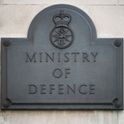The old slogan can be updated. There used to be (and maybe there still are) T-shirts proclaiming: “I love humanity; it’s people I hate.” Today’s version would say: “I love defence; it’s military operations I hate.”
For some years, YouGov surveys have found consistent admiration for Britain’s armed forces, but growing disillusion with their deployment in Iraq, Afghanistan and Libya. This month’s poll for Prospect, on the 70th anniversary of the use of atomic weapons against Japan and the end of the Second World War, gauges public attitudes to the postwar world and today’s controversies on defence spending; whether Trident should be replaced; and the negotiations with Iran over its nuclear programme.
Views about Hiroshima and Nagasaki divide three ways. A third of us think the Americans were right to use atomic bombs, a third of us think they were wrong, and a third of us don’t know. Those overall figures conceal big differences between different groups. Among those who take sides, support is strong among Conservative and UK Independence Party voters, men and voters over 60, while opposition is strong among Labour voters, women, the under 25s and Scots.
The gender gap—apparent in other questions in this survey—is striking but well-established. On most political and social issues, men and women tend to think broadly alike. But when it comes to questions of war and peace, men these days are invariably more likely than women to back military action. Our question about Hiroshima and Nagasaki shows that this difference extends to the way today’s men and women view the final, dramatic episode of the Second World War.
As for British defence strategy over the past 70 years, most of us think membership of Nato made us safer during the Cold War—and almost as many of us think that Nato still helps to protect us. Very few people are positively anti-Nato, with only 4 per cent saying our membership made us less safe during the Cold War, a figure that rises only slightly, to 6 per cent, when people consider today’s world.
Nuclear weapons are a little less popular, with not quite half the public saying that they made us safer during the Cold War or do so today; but, again, the proportion saying they made, or make, us less safe is fairly small: 10 per cent with regard to the Cold War, 11 per cent in relation to today’s conditions. Scotland has the highest figure for doubters, but even here the 32 per cent who say we are safer having nuclear weapons today outnumber the 21 per cent who think we are more at risk.
What, though, of life after Trident? The government says the cost of replacing it with a new generation of submarine-launched nuclear weapons is around £20bn. This is a large sum that could be spent elsewhere—beefing up our conventional armed forces or on schools or hospitals, or on tax cuts, or some combination of these.
The most popular option, picked by 34 per cent, is a like-for-like replacement, with a further 30 per cent wanting Britain to remain in the nuclear club but with a cheaper system. This takes the “pro-nuclear” total to 64 per cent. Only 20 per cent want us to leave the nuclear club altogether. Once again, Scotland stands apart, with by far the largest group, 41 per cent, wanting us to scrap our nuclear programme.
Explore the data:
What is less clear is why 64 per cent of Britons want us to retain nuclear weapons. We asked people to assess 10 possible threats to Britain’s future. A majority of voters regard four of these as posing “a big threat” or “some threat”—and nuclear weapons are of no use against three of them: al Qaeda, the Islamic State group and climate change. The fourth is Russia; the Cold War is over, but 62 per cent of us think Moscow still poses a significant threat. Whether we regard nuclear weapons as a useful deterrent against bad behaviour or an insurance policy in case things go badly wrong, or simply as a symbol of national pride, most of us want the UK to keep them.
Likewise with defence spending. Nato wants its members to spend at least 2 per cent of national income on defence. We designed our question to make clear the trade-offs involved. So it is striking that as many as 53 per cent want Britain to “continue to spend at least 2 per cent of national income on defence, and spend less on other public services,” while just 31 per cent want the government to “reduce defence spending below 2 per cent of national income, in order to protect spending on other public services to some extent.” Conservative and Ukip voters strongly favour keeping to the 2 per cent rule, while Labour and Liberal Democrat voters divide evenly.
Views might change if parents and patients feel that schools and hospitals are being starved of money in order to pamper our armed forces. But for the moment, most of us think that they are not being pampered and that, whether to enhance national protection or national pride, their budgets deserve to be protected.
Finally, we asked about Iran. For some years Britain has worked, through the European Union and the United Nations, to apply sanctions against Iran, and also sought a deal whereby sanctions would be lifted in return for Iran foreswearing its capacity to develop nuclear weapons and allowing in international inspectors to make sure it sticks to the agreement. On this occasion, most voters back the judgements of successive British governments. For the moment, few people fear that an end to sanctions would make Iran more dangerous.
Explore the data:













